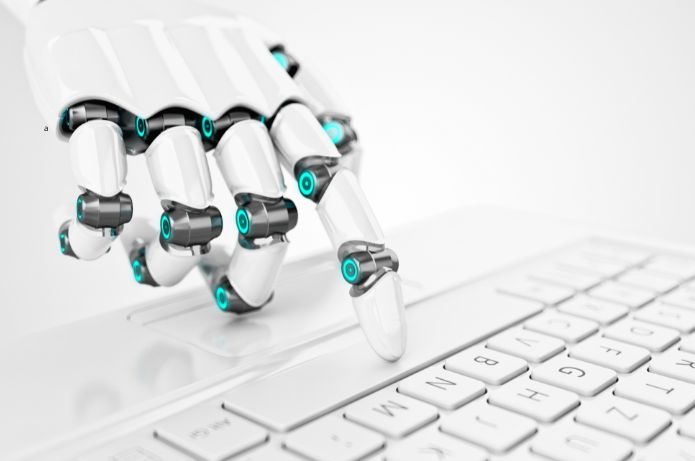O futuro do trabalho já está entre nós. Com a crescente influência da Inteligência Artificial (IA) e a automação em diversos setores, o mercado de trabalho está passando por uma grande transformação. Cada vez mais as empresas estão buscando profissionais com um conjunto de habilidades que vão além das técnicas e que os tornem mais adaptados a um mundo cada vez mais digital e complexo.
Nesta realidade acompanhada pelos mais avançados meios tecnológicos, não existe mais a separação entre o lado humano e o digital. Ou seja, as ferramentas e softwares ganham status de integrantes de equipes, não somente meros meios para o alcance de objetivos e metas. A tendência, pelo que acompanhamos, é termos cada vez mais uma metamorfose de funções e responsabilidades, além do surgimento de times compostos por humanos e por IA, desafiando assim as estruturas organizacionais e as formas de trabalho tradicionais.
Tal cenário faz com que existam muitos debates em torno dos possíveis desafios econômicos da tecnologia para companhias e trabalhadores. Há quem diga que a importância econômica do trabalho humano perderá relevância com os avanços da IA, que tomará para si um número maior de tarefas nos próximos anos. Dentro desta lógica, muitos aspectos socioeconômicos serão colocados, como a desvalorização de habilidades, a distribuição de renda e a criação de novas estruturas econômicas.
Eu não me coloco neste campo um tanto quanto pessimista. Ainda estamos distantes de uma IA plenamente capaz de executar importantes funções, seja no mercado de trabalho ou na vida em geral. Ela ainda produz muitos conteúdos equivocados, mesmo com modelos de linguagem cada vez mais robustos. O que a faz poderosa é a sua associação justamente com a mente humana, capaz de fazer a curadoria e referendar os resultados produzidos por essa e demais tecnologias. Sem o aspecto humano, podemos acabar com uma porção de ferramentas de uso limitado ou pouco útil.
Aos que, como eu, reconhecem que o futuro do trabalho já chegou, vale reforçar o que vem por aí. A IA ou a tecnologia não tomará empregos de ninguém, devemos tirar esse tipo de lógica do caminho. Contudo, essa nova realidade em torno do mercado exige um novo conjunto de habilidades, não importa a sua área de atuação. Por isso, ao desenvolver essas habilidades, você estará melhor preparado para enfrentar os desafios e aproveitar as oportunidades que o mundo laboral oferece.
Há números para ajudar a ilustrar o que quero dizer. Um em cada dez profissionais contratados neste ano possui um cargo que não existia há 24 anos atrás, de acordo com uma pesquisa do LinkedIn, que menciona funções hoje comuns como Gerente de Sustentabilidade, Engenheiro de IA, Cientista de Dados, Gerente de Mídia Social e Gerente de Sucesso do Cliente, mas que não eram as mais conhecidas, disputadas (ou até existentes) em 2000.
As principais empresas do mundo compreendem isso. Uma série de CEOs ouvidos em uma pesquisa da IBM afirmaram que as pessoas fazem e seguirão fazendo toda a diferença em seus negócios, porém pelo menos 35% da força de trabalho terá de passar por processos de reciclagem e requalificação nos próximos três anos – um acréscimo considerável em relação aos 6% registrados há três anos. Ou seja, não é só apenas sobre ganho de produtividade e redução de custos que estamos falando aqui quando pensamos em IA.
Outra prova de que o futuro do trabalho – ou aqui talvez também possa ser o trabalho do futuro – é uma iminência estratégica é a falta de profissionais qualificados em alguns campos da economia e dos negócios. Por conta disso, tão importante quanto investir na capacitação de quem já está na sua organização é conseguir se tornar um “imã de talentos”, e para isso iniciativas como a confiança nas lideranças, as oportunidades de trabalho remoto e híbrido, as remunerações e ações em favor de carreiras e diversidade aparecem como relevantes.
Alguns estudos apontam casos de sucesso aos que, no ambiente corporativo, se mostram dispostos a ser flexíveis, resilientes e capazes de se transformar. Segundo um relatório, quase 30% das companhias listadas são bem-sucedidas ao adotar modelos de trabalho focados em inovação, com tecnologias de ponta e força laboral flexível e distribuída. Essas empresas têm 30% menos despesas operacionais, graças à automação e processos melhorados, com ganhos financeiros positivos para 57% delas.
Como toda a mudança, ela pode ser muitas vezes incerta e causar uma série de temores. A mesma pesquisa do LinkedIn diz que 49% dos trabalhadores temem ficar para trás, com 64% afirmando estarem sobrecarregados com a velocidade das mudanças no trabalho (no Brasil este o dado sobe para 87%). Contudo, o contingente de profissionais em busca de cursos e qualificações adicionais também está em alta – 79% dos brasileiros destacam essa procura em suas áreas.
A IA está transformando a passos largos a maneira com que interagimos com a tecnologia e com problemas complexos. Tão importantes quanto os dilemas relativos à sua regulamentação e governança também está o significado do trabalho humano, peça que seguirá como pedra fundamental nesta equação que incorpora a potência digital e os valores humanos básicos. Desta forma, as habilidades seguirão em alta, desde que exista disposição em se reinventar.


